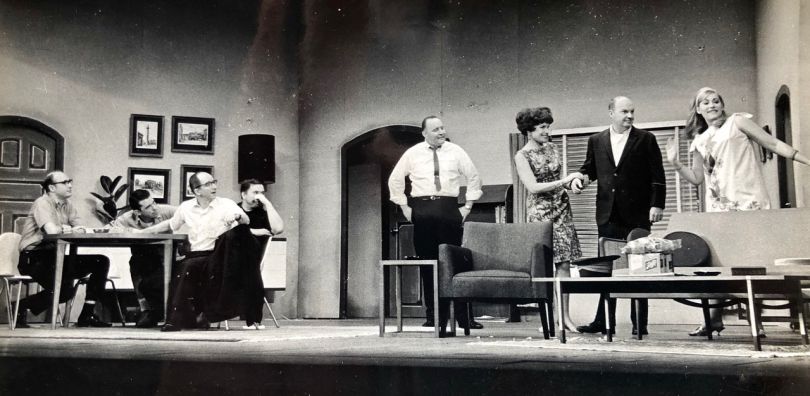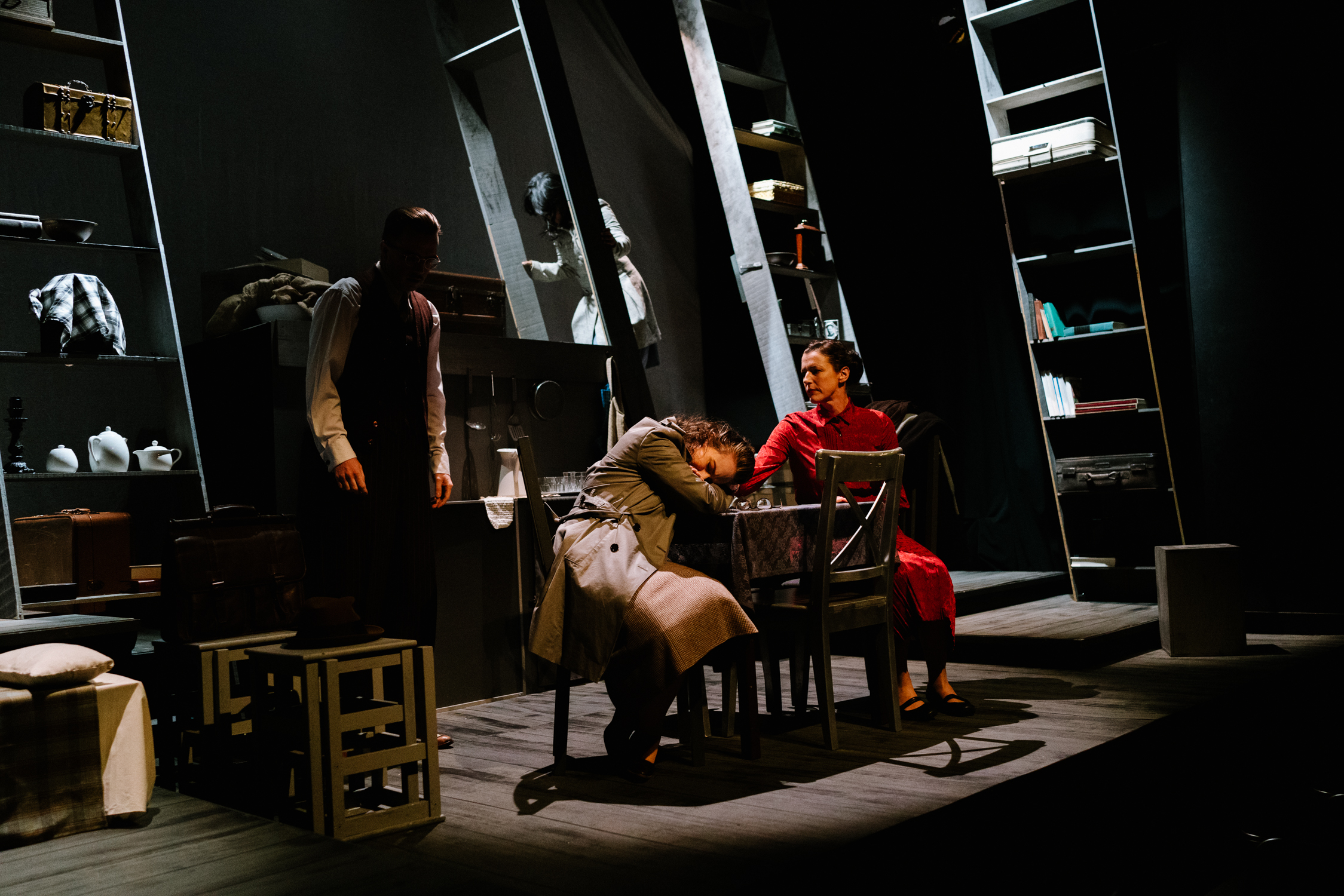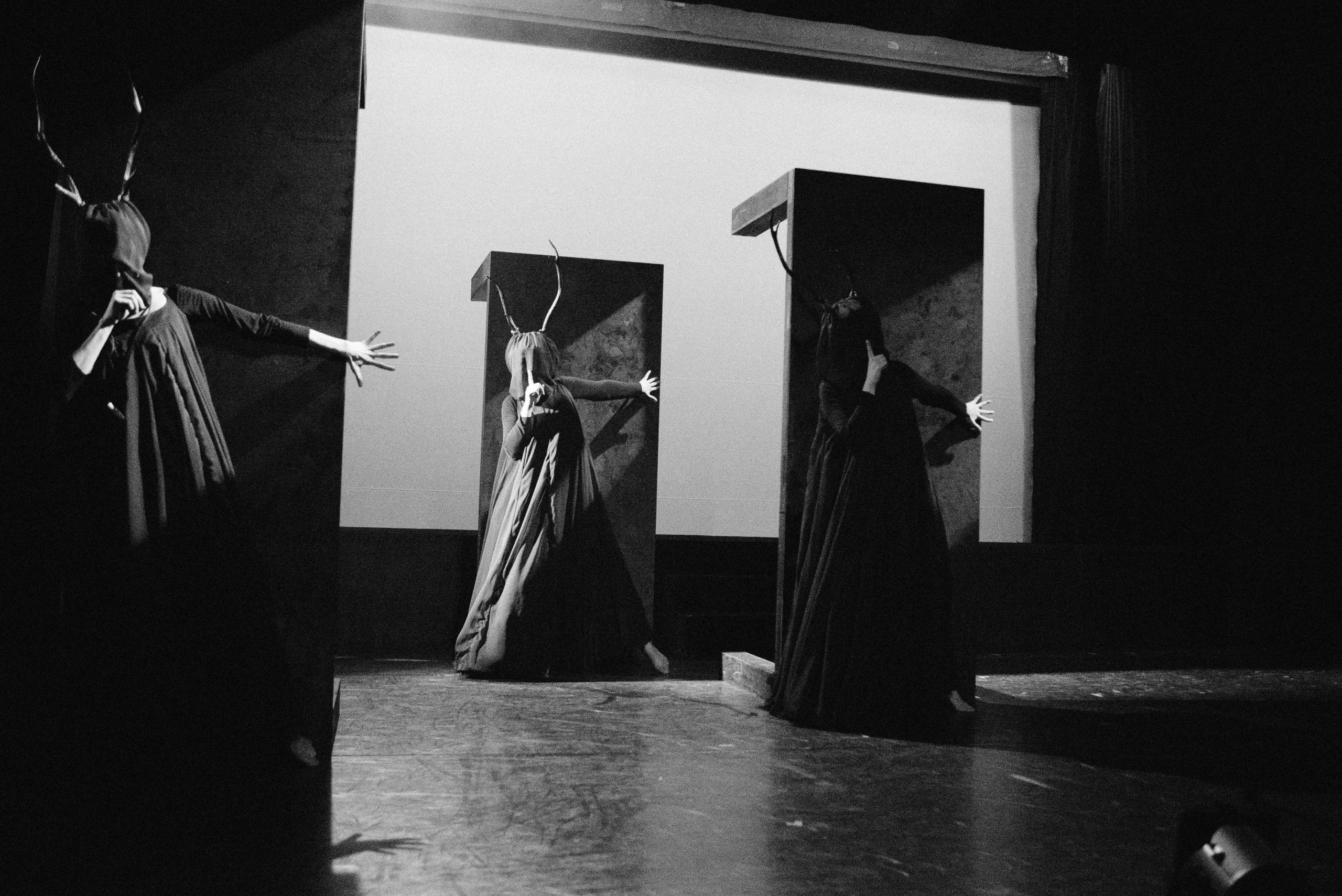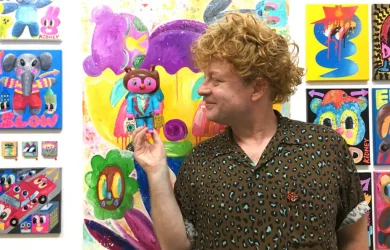
March 16, 2023
Tokyo International Players
In Conversation with Japan’s Oldest English-Language Theater Company
The Tokyo International Players society (TIP) has been providing a home for English speaking theater enthusiasts for over 120 years. Founded back in 1896 the society, then titled The Tokyo Dramatic and Musical Association, was chaired by the Chief of Mission of Belgium, Baron Albert d’Anethan. It was created with the purpose of providing a community for people who loved the theatrical arts here in Japan, with members being both foreign as well as Japanese.
Since its inception it has battled through many trials and tribulations going as far back as their very first performance, A Lesson in Love by Charles Smith Cheltnam. On the opening night the electricity blew just before the curtain was about to rise, but they soldiered on performing instead by candlelight.
This would not be the first, nor greatest difficulty the society would overcome, but no matter what was thrown at its members be it fire, earthquakes, or even a world war where tensions ran high they endured. The society is still going strong today as it bounces back from the latest disaster, the pandemic, which saw rehearsals and plays taken online as they continued to provide entertainment despite the conditions.

In its time TIP has put on hundreds of productions from classics such as Shakespeare’s Macbeth and Romeo and Juliet, as well as modern musical productions such as Sweeney Todd: The Demon Barber of Fleet Street and Into the Woods amongst many others. Its last production was actually an original musical written by one of TIP’s own members, Alexander Page.
As rehearsals are now underway for their next big production we spoke to Brian Berdanier, the current president of the Tokyo International Players, to ask him more about its history and where the society is today.
Metropolis: Tokyo International Players is over 120 years old and was the first ever English-speaking theater company in Japan, which comes with a lot of history. Could you briefly explain a little bit about its history in your own words?
Brian Berdanier: Yes, we are quite proud of our status as the oldest, largest English-language theater company in Japan! We have survived everything from world wars to pandemics, from political upheaval to bursting bubble economies. Our identity and mission have certainly evolved over the years, but there’s something special about theater—and the people who love it—that transcends time and space. I think it’s what has held our organization together for so long.
M: What is the mission of TIP today?
BB: We have two main goals. Obviously, we chiefly strive to provide a full season of professional-quality English-language entertainment to Tokyo audiences. In the last decade or so, we have also developed a secondary, educational mission that includes training opportunities for performers as well as various technical aspects of theater such as stage management and design.
M: How does TIP run, given that it is organized by volunteers?
BB: We have a nine-member board of directors who volunteer their time to oversee the day-to-day administrative aspects of the company. They are assisted by a dozen or so volunteer advisors. At the production level, each show has its own leadership team (director, producer, that sort of thing… also volunteers) who liaise with the board and advisors as necessary. All in all, it’s a pretty big ship with lots of moving parts.
M: TIP used to be attended by Barons and Academy Award-winning actors (Olivia de Havilland and Joan Fontaine). Who makes up TIP today?
BB: This is a tough question to answer as we’ve really got a bit of everything, from teachers and office workers looking for a creative outlet to theater professionals in search of new projects. We’re happy to be able to provide all sorts of people with an artistic home.

by Wendy Kesselman, directed by Jonah Hagans
May 2017
Photo by John Matthews
M: How has the theater company evolved over time, especially given that more foreigners now live and work in Japan than ever before?
BB: As I just mentioned, the TIP community is made up of an amazing variety of people from all over the world. It’s one of my favorite things about us! Interestingly though, I think the biggest demographic evolution that I’ve seen during my 10+ years with the organization has been the increased non-foreign presence; in other words, we’ve had more and more English-speaking Japanese actors, crew, and audience members join us, which is a wonderful and welcome development.
M: TIP has seen many unfortunate events, lights out on their very first play, the great Kanto earthquake, being monitored due to Japanese police believing TIP was running espionage operations in WWII, losing all records to fires due to bombing and most recently, Covid. Yet it continues to push through, why do you think the spirit of performing is so enduring here and how have you coped with the most recent difficulty of the pandemic?
BB: Gosh, I think I can go right back to what I mentioned earlier about theater being special and offering something unique to any community. I have been known to say that theater is the ultimate collaboration. It literally takes a bunch of different people doing a bunch of different things in order to exist. That spirit of cooperation and creativity has been like the glue that binds us together, even through the worst of the pandemic.
M: Other than the recent pandemic, what struggles does TIP face today and what are you doing to work around them?
BB: I think any artistic leader in the world is going to have the same, obvious answer to this sort of question: Money. Plain and simple. It is a constant struggle to produce quality art with limited resources, and the average theatergoer may not realize that ticket sales do not, in fact, pay all the bills. Renting a large theater for a week in central Tokyo can cost over two million yen. For one week! And that’s saying nothing of rehearsal space, props and costumes, set pieces, lighting equipment, storage and transportation, advertising and all the other expenses that go into putting on a great show. Fortunately, we have a very generous group of donors whose support keeps us in the black. Truly, every little bit counts. In fact, if any Metropolis readers are interested in donating, I am absolutely not above making a shameless plug for our newly improved donations website! [https://www.tokyoplayers.org/donations]
M: Shows used to be black-tie events, though, as with theater around the world, attending has become a lot more casual. Do you ever see a chance in the future to replicate the extravagances of the past and have a black-tie-attended performance?
BB: I don’t anticipate any black-tie performances on the horizon for us, but who knows? Actually, now that you mention it, before the pandemic we had a fabulous fundraising concert at a very cool event space in Omotesando which I suppose would have qualified as somewhere between semi-formal and black-tie-optional. We sometimes talk of doing an event like that again. So stay tuned!

by William Shakespeare, directed by Graig Russell
October 2016
Photo by John Matthews
M: You have started running workshops as well as putting on plays, can you tell us a little more about those?
BB: I would love to talk about workshops! As I mentioned earlier, they now constitute a big part of our stated mission and we have been putting a lot of effort into getting them up and running. On the artistic side, we have concentrated mostly on musical workshops, with my wonderfully talented colleague Karen Pauley organizing sessions related to vocal technique and musical interpretation. In terms of technical theater, we have run workshops in lighting design, stage management and directing. One of my personal goals has been to increase our offering of such “backstage” workshops since it’s such a great way for people to get involved, especially beginners. Incidentally, I should mention that our workshops tend to be amazing value for the money!
M: Can you give us a little look into TIP’s next performance?
BB: PRIDE AND PREJUDICE by Kate Hamill (based on the beloved novel by Jane Austen, of course) is going to be very, very special indeed. Hamill is a young American playwright who has made quite a career for herself by taking classic works of fiction and adapting them for the stage with a decidedly 21st-century, decidedly feminist sensibility. Diehard Austen fans needn’t despair: it’s still Lizzy and Darcy and still takes place in Regency England. However, there’s a special sort of spin to Hamill’s adaptations that I think people will find really fresh and fun. It’s a perfect choice for our return to in-person performances and I’m so proud that our production will be its Japan premiere. Suffice it to say that tickets are sure to sell out fast!
M: Finally, how can people get involved outside of acting?
BB: We’re always on the lookout for new volunteers to join us onstage, backstage, or in the administrative trenches. To learn more about volunteer opportunities, the best place to start is definitely by contacting our Volunteer Coordinator via the online form on our website. [https://www.tokyoplayers.org/volunteer].
Feature image:
The Odd Couple
by Neil Simon, directed by Richard Via and George Furness
December 1967
Photographer unknown; photo courtesy of Miranda Kenrick







